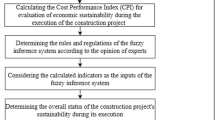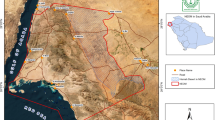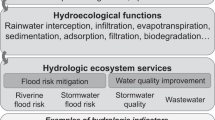Abstract
Extensive economic growth, waste of land resources and low land value are common problems in many cities around the world. Therefore, it is necessary to calculate the value of urban land resources reasonably. An economic value accounting model of urban land resources was constructed based on emergy and econometric theory in this study. Among them, emergy theory served natural land resources (waterbody, forest land and grassland) and economic theory served non-natural land resources (road and building land). Taking Zhengzhou City, China, as the study area, the results showed that the economic value of waterbody, forest land, grassland, road and building land in 2012 was, respectively, ¥3.08 × 1010, 9.19 × 109, 5.48 × 109, 3.07 × 1010, 2.83 × 1012. Due to the characteristic of building land, both economic value and economic density were the largest, exceeding the total value of urban natural resources. This research may provide scientific management and decision-making basis for the government to develop general plans for land use. Moreover, the value research of urban land resources is the basis and precursor for urban flood disaster assessment.





Similar content being viewed by others
References
Bhagat, S. S. (2014). The land market assessment for Surat city—A tool for urban land management. International Journal of Scientific & Engineering Research, 5(2), 26–29.
Brown, M. T., Martínez, A., & Uche, J. (2010). Emergy analysis applied to the estimation of the recovery of costs for water services under the European Water Framework Directive. Ecological Modelling, 221(17), 2123–2132.
Brown, M. T., & Ulgiati, S. (2004). Emergy analysis and environmental accounting. In C. J. Cleveland (Ed.), Encyclopedia of energy (pp. 329–354). New York: Elsevier.
Cai, J. H., & Xu, D. L. (2014). Error propagation of income approach in land evaluation. Science of Surveying and Mapping, 39(01), 117–120. (in Chinese).
Campbell, D. E. (2016). Emergy baseline for the Earth: A historical review of the science and a new calculation. Ecological Modelling, 339(10), 96–125.
Chen, D., Chen, J., Luo, Z. H., & Lv, Z. W. (2009). Emergy evaluation of the natural value of water resources in Chinese Rivers. Environmental Management, 44(2), 288–297.
Curtis, I. A. (2004). Valuing ecosystem goods and services: A new approach using a surrogate market and the combination of a multiple criteria analysis and a Delphi panel to assign weights to the attributes. Ecological Economics, 50(3), 163–194.
Diaz-Balteiro, L., & Romero, C. (2008). Valuation of environmental goods: A shadow value perspective. Ecological Economics, 64(3), 517–520.
Fang, C. L., & Ma, H. T. (2013). New City district development and intensive land use in the context of new-type urbanization. China Land Science, 27(07), 4–9. (in Chinese).
Feng, Z. M., Yang, Y. Z., & You, Z. (2014). Research on land resources restriction on population distribution in China, 2000-2010. Geographical Research, 33(08), 1395–1405.
Franzese, P. P., Brown, M. T., & Ulgiati, S. (2014). Environmental accounting: Emergy, systems ecology, and ecological modelling. Ecological Modelling, 271, 1–3.
Grönlund, E., Fröling, M., & Carlman, I. (2015). Donor values in emergy assessment of ecosystem services. Ecological Modelling, 306, 101–105.
Jia, Y. L. (2012). Study on ecological service value of chongqing green space based on emergy analysis. Dissertation, Chongqing University (in Chinese).
Larsen, J. F., & Riis, J. (1997). Testing a present value model of forest land. Scandinavian Journal of Forest Research, 12(3), 280–287.
Lavee, D., & Baniad, G. (2013). Assessing the value of non-marketable land: The case of Israel. Land Use Policy, 34, 276–281.
Lavee, D., & Doron, (2015). Land use for transport projects: Estimating land value. Land Use Policy, 42, 594–601.
Li, H. J., Yang, H. D., & Xu, X. (2015). Calculating the value of Nanjing land resources based on land ethics. Value Engineering, 34(13), 177–180. (in Chinese).
Lv, C. M. (2009). Research on ecological economic value of regional water resources based on emergy theory. Dissertation, Zhengzhou University (in Chinese).
Maio, F. D., Rem, P. C., Baldé, K., & Polder, M. (2017). Measuring resource efficiency and circular economy: A market value approach. Resources, Conservation and Recycling, 122, 163–171.
Markandya, M., Andreu, J., Sahuquillo, A., & Pulido-Velazquez, D. (2008). Hydro-economic river basin modelling: The application of a holistic surface–groundwater model to assess opportunity costs of water use in Spain. Ecological Economics, 66(1), 51–65.
McPhearson, T., Pickett, S. T. A., Grimm, V. B., Niemelä, J., & Alberti, M. (2016). Advancing urban ecology toward a science of cities. BioScience, 66(3), 1–15.
Medda, F. (2010). Land value capture finance for transport accessibility: A review. Journal of Transport Geography, 25(3), 154–161.
Mellino, S., Buonocore, E., & Ulgiati, S. (2015). The worth of land use: A GIS-emergy evaluation of natural and human-made capital. Science of the Total Environment, 506–507, 137–148.
Mmopelwa, G. (2006). Economic and financial analysis of harvesting and utilization of river reed in the Okavango Delta, Botswana. Journal of Environmental Management, 79(4), 329–335.
Odum, H. T. (1996). Environmental accounting, emergy and environmental decision making. New York: Wiley.
Odum, H. T. (2000). Emergy of global processes, Folio #2. Handbook of Emergy Evaluation. Gainesville: Center for Environmental Policy, University of Florida.
Painter, R. W., & Otis, R. D. (1997). Privatization: A new transportation paradigm. Annals of the American Academy of Political and Social Science, 553(1), 94–105.
Pearce, D., & Markandya, A. (1987). Marginal opportunity cost as a planning concept in natural resource management. Annals of Regional Science, 21(3), 18–32.
Pulselli, F. M., Coscieme, L., & Bastianoni, S. (2011a). Ecosystem services as a counterpart of emergy flows to ecosystems. Ecological Modelling, 222(16), 2924–2928. https://doi.org/10.1016/j.ecolmodel.2011.04.022.
Pulselli, F. M., Patrizi, N., & Focardi, S. (2011b). Calculation of the unit emergy value of water in an Italian watershed. Ecological Modelling, 222(16), 2929–2938.
Shaik, S., Atwood, J. A., & Helmers, G. A. (2012). Did 1933 new deal legislation contribute to farm real estate values: A regional analysis. Journal of Policy Modeling, 34(6), 801–816.
Shi, J. (2016). Value accounting and space-time dynamic research of land resources. Dissertation, Southwest University (in Chinese).
Stefanov, W. L., Ramsey, M. S., & Christensen, P. R. (2015). Monitoring urban land cover change—An expert system approach to land cover classification of semiarid to arid urban centers. Remote Sensing of Environment, 77(2), 173–185.
Wu, Z. N., Di, D. Y., Wang, H. L., Wu, M. M., & He, C. T. (2019). Analysis and emergy assessment of the eco-environmental benefits of rivers. Ecological Indicators. https://doi.org/10.1016/j.ecolind.2019.105472.
Wu, Z. N., Guo, X., Guan, X. J., Lv, C. M., & Wang, H. L. (2017). Water efficiency evaluation of a regional water scheme-Zhengzhou, China, using a water ecological-economic system (WEES) and based on emergy theory. Water Science & Technology Water Supply, 17(3), 674–687.
Yaning, G. E., Xu, X. L., Li, J., Cai, H. Y., & Zhang, X. X. (2016). Study on the influence of urban building density on the heat island effect in Beijing. Journal of Geo-Information Science, 18(12), 1698–1706.
Yuan, J. Y., Duan, C. Q., Ouyang, Z. Y., Zheng, H., & Xu, W. H. (2018). Ecosystem service valuation of different grassland restoration modes in Southeast Horqin Sandy Land. Ecology and Environmental Sciences, 27(3), 18–32. (in Chinese).
Zhang, X. L. (2008). The research on accounting valuation of land resources based on the new taxonomy of land resources in China. Dissertation, Harbin Institute of Technology (in Chinese).
Acknowledgements
This present study is financially supported by the Key Program (Grant No. 51739009), the General Program (Grant No. 51879241) and the Youth Program (Grant No. 51809239) of National Natural Science Foundation of China. We also grateful acknowledge the Chinese Academy of Sciences Resource and Environmental Data Center and the Zhengzhou Bureau of Statistics for providing data and information. We also thank reviewers for their insightful comments that have helped improve this manuscript.
Author information
Authors and Affiliations
Corresponding author
Additional information
Publisher's Note
Springer Nature remains neutral with regard to jurisdictional claims in published maps and institutional affiliations.
Rights and permissions
About this article
Cite this article
Lv, H., Guan, X. & Meng, Y. Study on economic value of urban land resources based on emergy and econometric theories. Environ Dev Sustain 23, 1019–1042 (2021). https://doi.org/10.1007/s10668-019-00573-4
Received:
Accepted:
Published:
Issue Date:
DOI: https://doi.org/10.1007/s10668-019-00573-4




